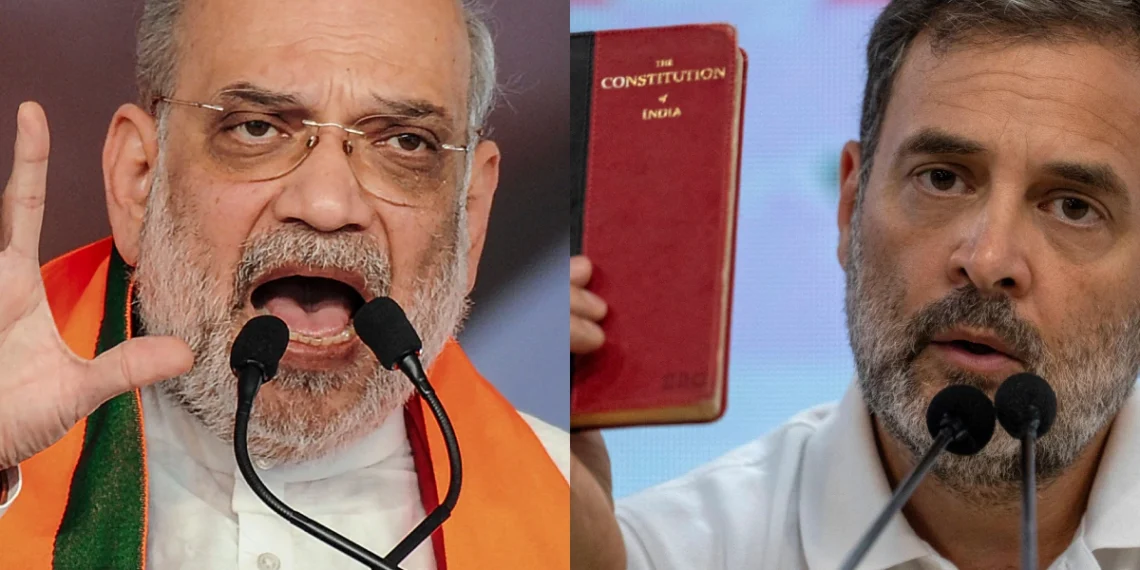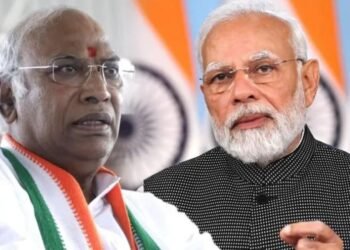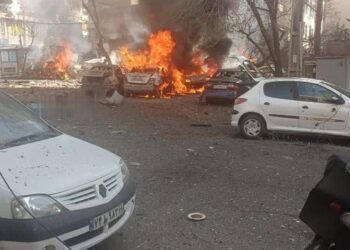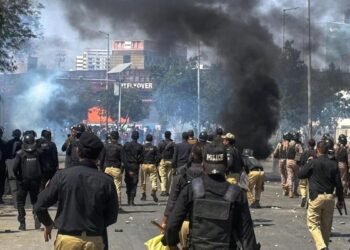Union Home Minister Amit Shah has canceled his Maharashtra rallies to return to Delhi for a high-level meeting on Manipur’s escalating violence. Experts suggest drastic measures, including a possible leadership change or President’s Rule, to address the unrest.
BY PC Bureau
Imphal/New Delhi: The escalating violence in Manipur has forced Union Home Minister Amit Shah to cancel his scheduled election rallies in Maharashtra and return to Delhi to oversee the situation. This decision comes amid mounting criticism from the opposition, particularly the Congress, regarding the central government’s handling of the Manipur crisis.
Sources suggest that the Modi government is under pressure to consider significant measures to stabilize the volatile situation.
Some of the measures often suggested by northeast experts include:
- Change of Leadership in Manipur: Chief Minister N. Biren Singh has faced accusations of exacerbating the ethnic violence and has lost the trust of the Kuki community. Experts argue that replacing him might help restore confidence among affected groups.
- President’s Rule: Another suggested approach is the imposition of President’s Rule, which would place the state under direct central administration to prevent further violence and ensure impartial governance.
- Strengthening Security and Governance: A team of central security officials is reportedly set to visit the state to assist the local administration.
The recent surge in violence has deepened ethnic divisions between the Meitei and Kuki communities, with incidents of arson, clashes, and the discovery of bodies intensifying tensions. The Congress and other opposition parties have criticized the BJP-led central government for failing to manage the crisis effectively. These developments put additional pressure on the government to take decisive action to quell unrest and restore order.
The centre recently rushed 20 battalions of paramilitary forces and seemed determined not to let the state slide into further chaos.
The unrest in Manipur intensified over the weekend. Irate mobs set fire to the residences of several political figures, including BJP legislators—one of whom is a senior minister—and a Congress MLA. Security forces intervened to thwart protesters attempting to storm Chief Minister N. Biren Singh’s ancestral home. Singh was not present at the time.
Protesters have been galvanized by the discovery of six hostage bodies, including an infant, near the Assam-Manipur border. This tragic revelation has reignited ethnic tensions between the Meitei and Kuki communities, with the violence plunging Manipur into a deeper security crisis. Properties belonging to BJP MLA R.K. Imo, Health Minister Sapam Ranjan, and others were targeted, with mobs torching vehicles and vandalizing offices. Ranjan assured protesters that the killings would be addressed at a cabinet meeting, even offering to resign if the government failed to act.
Curfews and Internet Shutdowns
To curb the unrest, the government imposed indefinite curfews in five districts, including Imphal East and West, and suspended internet services. These measures aim to prevent the spread of inflammatory content as protests continue to escalate.
Ethnic and Political Tensions
The recent surge in violence follows a gunfight that left 10 Kuki militants dead and the gruesome killing of a 31-year-old woman from the Hmar group in Jiribam. The Coordinating Committee on Manipur Integrity (COCOMI), predominantly representing the Meitei community, has demanded military action against Kuki militants and criticized the reimposition of the Armed Forces Special Powers Act (AFSPA) in certain areas. COCOMI spokesperson Khuraijam Athouba accused the government of neglecting Meitei interests and raised concerns over external involvement in the conflict, pointing to mercenaries and proxy armies from Myanmar.
Meanwhile, Mizoram’s student body, Mizo Zirlai Pawl, called on the central government to ensure the safety of Mizo students in Manipur. Protests by thousands of Naga women also erupted, opposing AFSPA and other policies they view as dividing their community across the Indo-Myanmar border.
Amid the unrest, COCOMI plans to submit a memorandum to Prime Minister Narendra Modi demanding the rescue of abducted civilians and an explanation of the government’s actions. Naga leaders, including the Naga People’s Movement for Human Rights (NPMHR), have voiced concerns over militarization in their territories, accusing the central government of atrocities and advocating for peace without repression.
The crisis in Manipur underscores the deep-seated ethnic, political, and security challenges plaguing the region. As Home Minister Shah takes charge, all eyes are on the central government’s efforts to de-escalate tensions and address the grievances of its diverse communities.
At the same time, thousands of Tangkhul women, of Naga origin, took part in a rally against the imposition of AFSPA, the revocation of the Free Movement Regime (FMR), and the border fencing project encroaching on Naga territory at Urukhul, 80 kms from capital Imphal.
The Tangkhul are part of the larger Naga ethnic group, alongside tribes such as the Ao, Angami, and Sema from Nagaland, as well as other Naga tribes in Manipur.
Rally participants carried placards with slogans such as:
- “Settle Indo-Naga political issues right now.”
- “No bifurcation of Naga land.”
- “Government of India: stop delay tactics.”
- “Repeal AFSPA.”
- “Respect human rights.”













